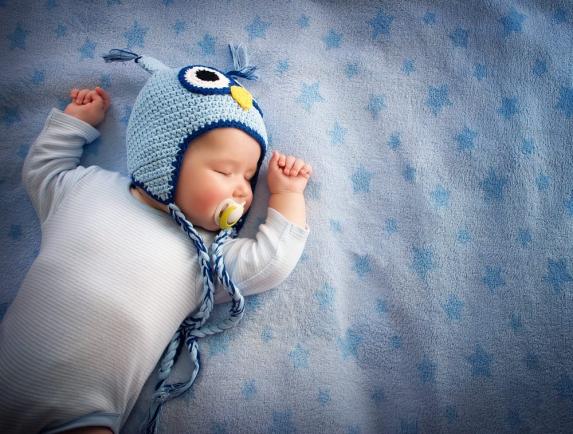
At first, your newborn baby is most likely not going to sleep through the night. On average, infants sleep about 17 hours a day. This sounds like a restful schedule for you, but it's really not. So what do you need to know about infant sleep patterns? The more you understand, the better prepared you'll be to ensure your infant gets the sleep he or she needs, not to mention enough rest for yourself.
How do infants sleep?
Of course, not every baby will be the same. Some will start sleeping through the night at only a few weeks while others will be take longer. For example, you might get a reverse-cycler, where your baby has day and night reversed, which you can read more about in this article by KellyMom. Depending on your schedule and feeding preferences for your baby, reverse-cycling may or may not be a good thing.
One thing you can count on is that your baby is not going to be born with a perfect sleep schedule. She might start out waking up every few hours, start reverse-cycling, stop reverse-cycling, sleep through the night a couple times, and then start waking you up again a few times a night needing a diaper change and to be fed.
During the first few weeks, your newborn will wake up hungry around every three hours on average. Some newborns are so sleepy they have to be awakened to be fed. This will stop after a few weeks, and you'll get more waking hours with your baby. The number of times he wakes up during the night will usually decrease with time. Typically, by the time your baby reaches one year, he should be able to make it through the night without waking up to be fed.
Remember to get sleep yourself
Newborns might sleep a lot, but their sporadic patterns will most likely leave you exhausted. If this is the case for you, Van Winkle's reports that background noise can help you sleep. Not only can white noise help you sleep, but it can be good for your baby, too. If you don't have a fan or something else to make a constant noise, there is an app for white noise or lullabies that can help babies (and you) sleep better.
Know the signs of your tired baby
How do you know when your baby is tired? She will be grumpier and fussier than usual, she may rub her eyes or cry. Don't wait too long after she starts showing signs that she is tired. That will only make it more difficult for your little one to fall asleep. Recognize the signs quickly so you can get your baby in a pattern of going to sleep right when she starts to get sleepy.
Establish a routine
Infants are like adults in the sense that having a specific bedtime routine can be helpful. For example, do bathtime right before bed, listen to music or read a book. Don't run around, energetically singing and talking to them, and playing with toys the same as you would during the day. Have a calm, bedtime routine that lets them know it's nighttime, and do just the opposite during the day. Go about your normal daytime routine. If you tiptoe around the house all day so as not to wake the napping baby at three in the afternoon, just as you would do at night when people are sleeping, your baby won't understand the difference between night and day. You can also check out tips from other parents on Owlet for how to get your baby to sleep.
The most important thing to remember is to be patient. And after a couple months, try to set up a schedule to get your child used to a routine. Every baby is different, and it will take some time to learn what your baby is all about.

